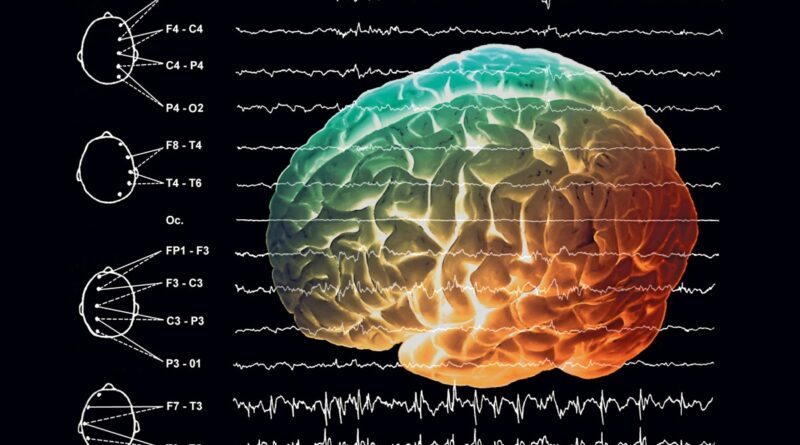Navigating The Management Of Epilepsy
Epilepsy is a neurological disorder that affects a lot of people across the world. It is characterized by uncontrolled recurrent seizures which result in abnormal stiffness and jerky movements of the muscles in the body. Epilepsy can significantly impact the quality of life of those who have it. Despite its perilous impact, many people have limited knowledge about the condition, causing misconception and stigma.
What is epilepsy?
Epilepsy is a chronic disorder marked by uncontrolled recurrent seizures. These seizures are sudden surges of electrical activities in the brain that can affect a person’s behavior, movements, or consciousness. It is an outburst of uncontrolled electrical activities between the brain nerves and the body that results in jerky movements of muscles and the body. There are several types of seizures ranging from mild, brief lapses in attention to severe, prolonged lapses. The severity and acuteness of seizures depend on each individual and vary from person to person.
Neurons.
There are two types of neurons responsible for seizures.
1. Excitatory Neurons: These neurons are responsible for increasing the likelihood that the neurons they connect to will fire an action potential. Thus, excitatory neurons effectively excite or stimulate their target neurons, allowing messages to be transmitted from one cell to another. Examples of excitatory neurons transmitted include Glutamate, Epinephrine, and Norepinephrine.
1. Inhibitory Neurons: These neurons suppress, block, restrict, or decrease the likelihood that the neurons they connect to will fire an action potential. They inhibit the activities of their target neurons not to. A balance between excitatory and inhibitory signals is essential for normal brain function. Imbalance can lead to various neurological and psychiatric disorders, such as epilepsy( excessive excitation)
Causes and Risk Factors of Seizures.
The causes of epilepsy can be diverse and complex. Genetic factors play a crucial role here, several people battling with epilepsy inherited it from their parents or older family members, and they have it running through their families. People with brain injuries are also prone to epileptic attacks, the nerves of the brain may be injured as well causing it to fire wrong messages. Other causes include stroke, infections such as meningitis or encephalitis, and developmental disorders. Sometimes, the cause of epilepsy may not be known, which can be frustrating to patients and their families and may cause them to seek spiritual and other forms of attention.
What can provoke Seizure?
- Waves from the neurons of the body.
- Fever Disease Condition
- Electric Current Stress
- Trauma
- Seizures can also be unprovoked
Diagnosing and Treatment Of Epilepsy.
Epileptic diagnosis usually involves a thorough medical history, tests such as electroencephalograms( EEG), magnetic resonance imaging (MRI), and Neurological exams. Once diagnosed, treatment focuses on controlling seizures since it is the cause often through medication. Anti-epileptic drugs (AEDs) are the most common treatment. Still, some patients may require surgery, devices such as vagus nerve stimulators “VNS”( a VNS is a device that is surgically implanted under the skin in the chest area, with a wire connected to the left vagus nerve, it is programmed to send a regular mild electrical pulse to the nerve.)or dietary therapies(ketogenic diet, A ketogenic diet is a high-fat, low-carbohydrate diet designed to put your body into a metabolic state known as ketosis, in ketosis, your body becomes efficient at burning fat for energy instead of carbohydrate]).
Living With Epilepsy.
Managing and living with epilepsy involves a lot more than medical treatment. It consists of coping strategies, and adjusting the way of life. Regular sleep, a balanced diet, frequent exercise, stress management, and emotional support can help one to reduce the rate of seizures. Support from family, friends, and epileptic support groups can provide advice practically and emotional strength. Educating the people surrounding you about epilepsy can help reduce stigma and improve a supportive environment.
Myths and Facts about Epilepsy.
There are a lot of misconceptions and myths about epilepsy which contribute to its high discrimination and stigma.
1. Epilepsy is infectious: Epilepsy is not contagious, it cannot be transmitted from person to person through any form of contact. Touching someone with epilepsy will not cause you to get it as well, Epilepsy is a neurological disorder caused by genetics, medical conditions, and brain injuries.
2. People with epilepsy cannot live a normal life; Many people with epilepsy lead full, productive normal lives. With proper management, the epileptic patient can pursue their careers, education, relationships, and hobby.
3. Epilepsy is a rare condition: Epilepsy is a prevalent neurological condition and has a significant impact on a large number of individuals globally, including those residing in the United States.
4. Epilepsy always begins from childhood: Epilepsy often starts in childhood but it can as well develop at any age. Seizures can start from infancy, adolescence, adulthood, or even very late in life, depending on various factors such as brain injuries, medical conditions, and genetics.
5. Epilepsy has no treatment: Of course, there is no cure for epilepsy but there are many different effective treatments available. Medications, lifestyle adjustments, and surgeries can help control seizures.
Epilepsy is a misunderstood and complex condition that requires both medical and societal support. By increasing education and understanding, we can aid improve the quality of life of those living with epilepsy and reduce the stigma associated with it. If you know someone living with epilepsy, reach out for support and resources to help the person live a fulfilling life.


